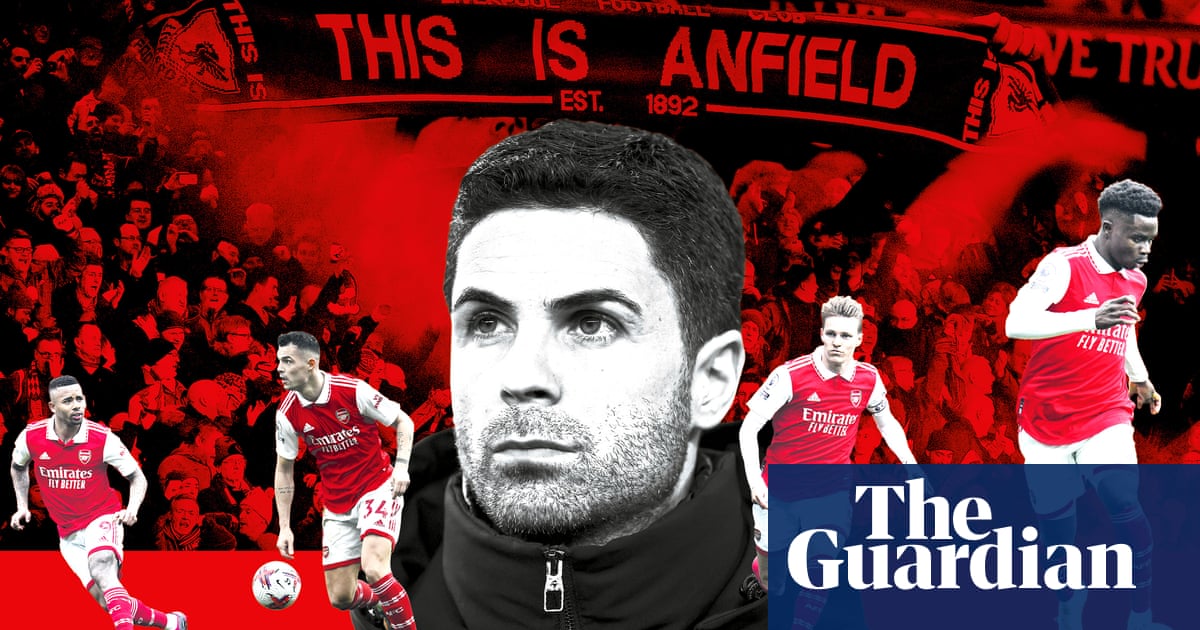
Rupert Soames was driving north “one dark and stormy night” in late 2013 when an item on the 6pm news made his ears prick up. Serco, the outsourcing giant that had become synonymous with ripping off the taxpayer, had just sacked its chief executive.
“I got on to the headhunter that evening and said, ‘So can I do it? Can I do it?’ I had always wanted to do a turnaround that was very large … but most importantly I wanted to do something in public service.”
Soames got the job and joined in early 2014, when Serco was vying for the label of Britain’s most-reviled company. It was in the dock for having overcharged the Ministry of Justice (MoJ) tens of millions of pounds for electronically tagging offenders, some of whom were dead or still in prison; its shares were in freefall; and it was barred from winning new government work.
“I have a horrible habit of walking towards gunfire,” says Soames with a grin, sitting in the central London office of his public relations adviser, wearing his trademark blue shirt embroidered with the words “Serco and proud of it”. (He ordered a batch when he was appointed.)
The new chief executive’s approach combined gusto with a heavy dose of gallows humour. His initial appeal to staff was: “Bring out your dead.” In response, he says, “rather a lot of bodies came flying out”.
Soames puts his appetite for danger in the line of duty down to his ancestry: his grandfather was Sir Winston Churchill.
“It may come as an amazing surprise to you, but it’s something that comes with some family history of public service,” he says. “And I could never be a politician because I can’t remember people’s names.”
Westminster might have been the obvious choice: his eldest brother, Sir Nicholas Soames, is a former Conservative defence minister; his father was Sir Christopher Soames, a Tory minister in the 1960s and later ambassador to France.
The public service Soames chose was of an altogether grittier kind. Serco works in some of the most sensitive corners of government, dicing with scandal on a daily basis. It runs six prisons for the MoJ; it houses asylum seekers; it runs London’s Santander bike hire scheme; and it helps run
CV
Age 62
Family Married with three children
Education Eton College, followed by politics, philosophy and economics at Oxford University.
Pay £4.9m including bonuses
Last holiday A trip to Mallaig on the west coast of Scotland, where he has a home.
Best advice he’s been given Something he read, rather than being told: J Paul Getty’s maxim, “Rise early, work hard, strike oil.” However, he qualifies that by adding: “You can’t say to people who do 12-hour shifts in a prison that they don’t work hard enough. A lot of it is an accident of birth. And a lot of it is luck.”
Biggest career mistake An attempted management buyout, when he was in his late 30s, of Birmingham weighing scale company Avery. “The timing and financing were wrong and I got fired.”
Word he overuses “Yes”, and another word “that’s not for a family newspaper”.
How he relaxes “Walking the hills in Scotland and mucking around with boats. If I wasn’t doing this job, I would like to be coxswain of the RNLI lifeboat at Mallaig.”
the much-criticised £37bn Covid test and trace system for the NHS.
Soames keeps a toilet brush on his desk – he calls it his “shit-o-meter” – to emphasise how precarious it all is. “Its bristles are finely tuned, so if I come in in the morning and they’re going clackety-clack, something is going wrong somewhere.”
With some exceptions, the shit-o-meter has not rattled as loudly in recent years. Serco’s shares have not quite taken off, but it has restored its dividend, and is plotting expansion.
Yet for all Soames’s efforts, the principle of government outsourcing – where the state pays the private sector to do its work – has rarely looked so uncertain. Water companies are under fire for pumping sewage into rivers and the sea, and a Tory government has taken to renationalising services – from energy suppler Bulb to railways.
Soames says some of his predecessors were “deeply complacent” that the outsourcing trend turbocharged by New Labour would continue unchallenged – and this led to Serco’s near-death experience, and the collapse of rivals from Carillion to Interserve. Yet, he says, the principle still stands firm. “It’s called choice. It’s called competition. It’s called calling for new ideas.”
Still, there are lines even Soames will not cross – “actually firing guns” in the defence business, or “taking decisions or making judgments about people’s lives” in prisons and immigration.
While governments have leaned heavily on the private sector during the pandemic for everything from vaccine development to supplying PPE, accusations of profiteering, cronyism and poor scrutiny of contracts have further frayed that pact.
Serco – and Soames – have been well paid for their test and trace work. At it one point, Serco had 20,000 people working on it – many of them calling contacts of the infected and telling them to isolate. Last year the company earned about £700m in Covid-related revenues around the world – the bulk of this in the UK – with a 5% profit margin.
There’s a pause as Soames wrestles with whether contact tracing has actually worked, or been a waste of taxpayer money. “It’s a complicated answer. Tracing worked up to the point when the pandemic ran completely out of control,” he says. “I personally believe that it worked in between the times of the very greatest peaks.”
Now, with Omicron endemic and an estimated one in 15 people in the UK infected, tracing appears futile. Soames says the issue of whether it was a good idea, or whether it worked, is above Serco’s pay grade. “The government was taking advice from scientists, who said you need to do tracing … What if there hadn’t been any tracing? I think people would have been outraged.”
Soames took a meandering journey to Serco. The old Etonian went to Oxford University, where he was president of the union, a member of the notorious Bullingdon Club and a DJ. He was offered a job at GEC Marconi by its boss, Lord Weinstock, then moved to software business Misys, before turning round Aggreko, a Glasgow-based emergency power generator company, taking it into the FTSE 100.
There has been anger at his pay at Serco: last year’s £4.9m package took his total earnings since joining to £23.5m. “I’m very well paid,” he says. “Of course I think about the pay differential (with the company’s lowest-paid staff), but I am made of flesh and blood.”
We are almost out of time, but there is still enough for one final party piece from Soames the DJ. He triumphantly sets his iPhone on the table and the soaring chords of Samuel Barber’s Adagio for Strings fill the room, before Puff Daddy’s lament for Biggie Smalls, I’ll Be Missing You, kicks in.
The chief executive of Serco leaps to his feet and does an impression of a dancing pallbearer: “This is what I want to have at my funeral.”












